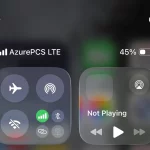Home » UK ISP News Archive » Article Tag: Science (261 Posts)
Sponsored Links
You are viewing a news and article archive for the Science tag (category), where older items are stored for readers to access and view.
Search ISP News
Search ISP Listings
Search ISP Reviews
Articles for Category Tag - Science
30th April, 2019 (2 Comments)
Fibre optic comms provider SSE Enterprise Telecoms has been chosen by Jisc to launch the Janet South network. The rollout will see 7 more BT exchanges unbundled and will utilise 4 existing Points of Presence (PoPs) to provide improved connectivity to 11 UK universities and 80 local colleges.
25th April, 2019 (10 Comments)
After several years of development Alphabet’s (Google) Loon project, which hopes to distribute mobile broadband (4G / 5G) connectivity from High Altitude Platforms (stratospheric balloons), has just secured an investment of £97m ($125m) from SoftBank’s HAPSMobile in order to help support their commercial roll-out (due to begin this year).
28th February, 2019 (0 Comments)
Advertisement
6th February, 2019 (2 Comments)
A developer of the new Visible Light Communication (VLC) based networking technologies, pureLiFi, has announced that they’re about to demonstrate the first “consumer ready” Gigabit speed Light Fidelity (LiFi) kit. The new technology has also been miniaturised so that it can fit inside of a Smartphone.
4th February, 2019 (2 Comments)
The AutoAir project, which is supported by a £4.1m Government grant, has confirmed that the UK’s first independent 5G enabled trial of Connected and Autonomous Vehicles (CAVs) will go live this month at the Millbrook Proving Ground (Bedfordshire). Mobile broadband speeds of up to 1Gbps are expected.
22nd January, 2019 (19 Comments)
The International Telecommunication Union is close to giving its final approval to a new standard (G.9991 / G.vlc), which could finally help to turn secure high-speed indoor Visible Light Communication (VLC / LiFi) networks into something that you can buy instead of WiFi.
Advertisement
12th January, 2019 (6 Comments)
A series of new ITU standards promise to help encourage the ‘Do-It-Yourself‘ generation to build their own Terabit capable remote broadband networks. The standards propose a cheap, tough and lightweight optical fibre cable that can be laid on the grounds surface, underwater, aerially or shallow buried with hand tools.
22nd November, 2018 (3 Comments)
A joint outdoor field trial by Mitsubishi and NTT DOCOMO in Japan appears to have achieved a “world’s first” by pushing the future 5G mobile network technology to deliver maximum throughput speeds of 27Gbps and 25Gbps (communication distances of 10m and 100m respectively) via one mobile terminal in the 28GHz band.
24th September, 2018 (2 Comments)
We’re saddened to report that Nobel Prize winner Sir Charles Kuen Kao (aka – “Father of Fibre Optics“), whom was jointly awarded the 2009 Nobel Prize in Physics for “ground-breaking achievements concerning the transmission of light in fibres for optical communication“, passed away yesterday at 11:45am in Hong Kong.
Advertisement
8th August, 2018 (7 Comments)
A recently published study from researchers at the University of Pittsburgh (USA) and Bocconi University (Italy) attempts to “identify the causal impacts” of “high-speed internet” on sleep duration and sleep satisfaction. The results, they claim, suggest that those with good broadband tend to sleep 25 minutes less than those without.
3rd August, 2018 (23 Comments)
A team of scientists from Japan and the EU have found a way to replace the use of many parallel lasers with a single frequency comb source, which has enabled them to push data at a speed of 661Tbps (Terabits per second) down a single-mode 30 core optical fibre cable.
18th July, 2018 (1 Comment)
New research from the University of Wisconsin-Madison has warned that rising sea levels will soon threaten the land-based stations for undersea fibre optic cables, as well as data centres and other vital international telecoms infrastructure situated in or around low lying coastal areas.
Advertisement
5th July, 2018 (0 Comments)
Underground optical fibre networks aren’t just brilliant at delivering ultrafast broadband ISP speeds to UK homes. A team of German scientists have found that they can also be used to detect Earthquakes, as well as other seismic signals from hammer shots, passing cars or wave movements in the ocean.
18th June, 2018 (34 Comments)
12th June, 2018 (6 Comments)
BT claims to have built the UK’s “first practical quantum-secured high-speed fibre network“, which harnesses quantum encryption and can transfer data at a speed of 500Gbps (Gigabits per second). The network runs over a distance of 120km via multiple exchanges between BT Labs in Ipswich and Cambridge University.
30th April, 2018 (7 Comments)
A future video standard called Versatile Video Coding (VVC), which could potentially make it possible to squeeze a high quality 4K (3840 x 2160 pixels) video stream down a fairly slow broadband ISP line, is in the early stages of development at the International Telecommunication Union (ITU).
24th April, 2018 (4 Comments)
A team of Dutch scientists from the Eindhoven University of Technology (TU/e) have borrowed a technology from existing copper based ADSL and VDSL (FTTC) networks in order to boost speeds over pure fibre optic (FTTH/P) lines, such as by implementing adaptive modulation techniques.
Cheapest Big ISPs for 100Mbps+
Community Fibre £19.00
100Mbps (100Mbps up)
Vodafone £22.00
150Mbps (27 - 150Mbps up)
Virgin Media £23.99
264Mbps (25Mbps up)
Plusnet £23.99
145Mbps (30Mbps up)
Latest UK ISP News
New Forum Topics
By: Lucian
By: polarprime
By: The Wee Bear
Promotion
Helpful ISP Guides and Tips
Promotion
Cheap Unlimited Mobile SIMs
Latest Interviews
Sponsored
Copyright © 1999 to Present - ISPreview.co.uk - All Rights Reserved - Terms , Privacy and Cookie Policy , Links , Website Rules , Contact








































